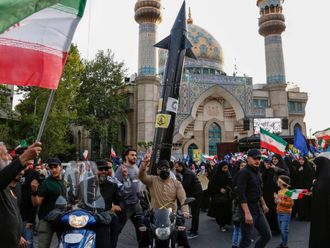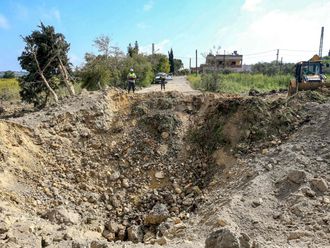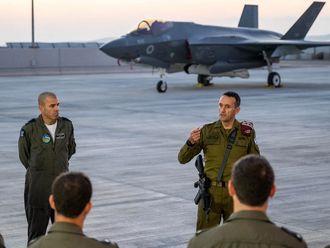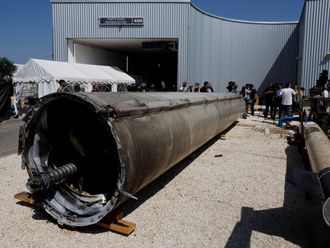Geneva: The UN Human Rights Council's annual session opens on Monday, determined to put more pressure on Syria's hardline regime after publication of a list of officials suspected of crimes against humanity.
"We want Syrian authorities to give up being in denial," one diplomat said. The Human Rights Council must "continue to put pressure on Syrian authorities".
The annual meetings which will be opened by UN rights chief Navi Pillay and Nasser Abdul Aziz Al Nasser of Qatar, president of the UN General Assembly for 2011-12, will also look into latest developments in Iran, Libya, Sri Lanka, Myanmar and North Korea.
However, debates during the first three days are expected to focus on the nearly one-year crackdown by the regime of Bashar Al Assad on dissent in Syria.
About 90 government ministers and senior officials, including the foreign ministers of France, Germany, Spain, Egypt and Iran, as well as Libyan Prime Minister Abdul Rahim Al Keeb, are expected to attend.
Call for urgent debate
Qatar, which has backed calls for an Arab peacekeeping force in Syria, and several other Arab countries, the European Union and the United States have called for an "urgent debate" tomorrow on the escalating crisis.
"I hope that a strong political message will come from this debate with an appeal for better access to humanitarian aid, and particularly a humanitarian truce for which the ICRC (International Committee of the Red Cross) continues to work," council president Laura Dupuy Lasserre of Uruguay said.
International investigators on Thursday gave Pillay a list of Syrian military and political officials suspected of crimes against humanity. This will be discussed on March 12.
Violence documented
The UN-commissioned panel said it documented a widespread and systematic pattern of gross violations by Syrian forces, "in conditions of impunity", since March 2011.
It said Syria's government had "manifestly failed" to protect its people, but also said it had found instances of gross abuses committed by rebel fighters, many of them army defectors.
The commission recommended the initiation of an inclusive political dialogue, bringing together the government and opposition groups.
The council wants international pressure on the Al Assad regime to be stepped up, an end to the violence and better access for humanitarian aid, Eileen Chamberlain Donahoe, US ambassador to the council, told a press briefing.
A European diplomat also confirmed that the annual session which winds up on March 23 aims to agree on a "strong resolution" as the situation on the ground continued to get worse.
The council has so far held three special sessions on the Syria crisis.












